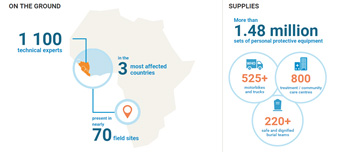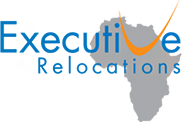West Africa: Recovering from Ebola
One year after the outbreak of Ebola in West Africa was declared as a Public Health Emergency, the World Health Organisation has cautioned that the outbreak is not yet over. We recap some of the astounding figures behind the global response, and pay tribute to the significant progress made.
Although the World Health Organisation (WHO) declared the latest Ebola outbreak as a ‘Public Health Emergency of International Concern’ on August 8, 2014; the Ebola virus was first noted as a disease as far back as 1976.
The sad truth discovered in West Africa, however, was that 38 years after Ebola’s discovery there were few diagnostic services and teams in place to deal with the disease, and no Ebola vaccine.
That situation has since improved dramatically, as detailed in the WHO’s overview tracing the milestones achieved in the past year: Ebola Response in Action
 Ebola Toolbox:
Ebola Toolbox:
- Key Facts (WHO)
- Latest Statistics (WHO)
- Infographics & Illustrations (CDC)
- Updates from Doctors Without Borders (MSF)
Four rapid diagnostic tools have been developed to detect the Ebola virus within a matter of hours; WHO believes that we are only months away from having a safe vaccine available; and a global network of thousands of medical professionals has been established for rapid deployment.
The statistics, however, paint a grim reminder that the campaign against Ebola needs to continue, as the number of those affected continues rising (albeit more slowly). According to WHO’s official count, as of the end of July 2015 there were 27 724 recorded cases of Ebola, and 11 274 deaths.
While brief outbreaks last year in countries such as Nigeria and Senegal were quickly treated and the countries were declared Ebola-free, the worst-affected countries of Sierra Leone, Liberia and Guinea continued experiencing new cases of Ebola in 2015.
Having discharged its last four Ebola patients from hospital in July, Liberia is again looking to renew its claim of being Ebola-free. By comparison, new Ebola cases are still being detected in Guinea and Sierra Leone at a rate of 14 to 18 per week (July figures from Doctors Without Borders).
Executive Relocations in Africa is at your service, should you require relocations support for yourself or other staff members on assignment in any Ebola-affected country. Click here to contact us, and let us demonstrate how our expertise in Africa can bring you peace of mind.
 +27 21 810 8000
+27 21 810 8000



Comments are closed.